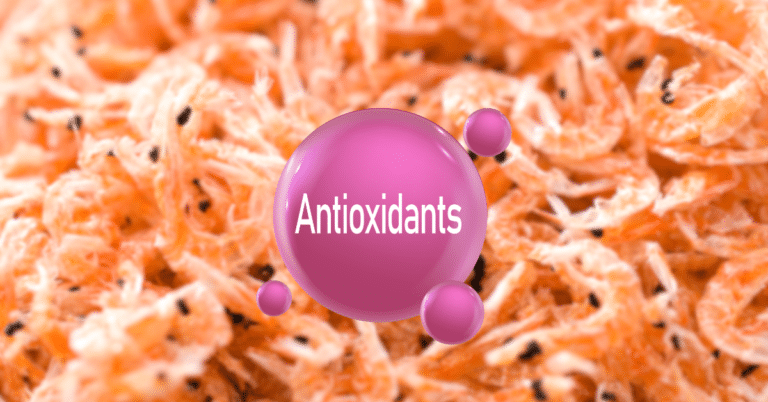In today’s world, where individuals belonging to Generation Z are more inclined towards achieving healthy and radiant skin, people are constantly seeking natural remedies and supplements to enhance their complexion and tackle skin issues. One elixir that has been gaining recognition for its numerous benefits is krill oil.
Krill Oil is derived from tiny, shrimp-like crustaceans known as krill; krill oil offers many advantages for skin health. In this blog, I’ll delve into the world of krill oil and explore its remarkable benefits for your skin. I’ll also compare krill oil to its more popular counterpart, fish oil, and highlight the differences between krill and shrimp, uncovering the unique qualities that make it a powerful ally for your skin.
What Is Krill Oil And Its Origins?
Before exploring how krill oil can benefit your skin, let’s get acquainted with this natural wonder. Krill oil is extracted from small, plankton-eating krill crustaceans found in the pristine waters of the Antarctic and other cold oceans. These minuscule creatures are crucial to the marine food chain, thriving in one of the planet’s most polluted environments.
Krill oil is rich in essential fatty acids, particularly omega-3 fatty acids in the form of phospholipids. These phospholipids, primarily phosphatidylcholine, give krill oil its unique structure and superior bioavailability. This means that your body can absorb and utilize the nutrients in krill oil more effectively than other sources of omega-3, like fish oil.
Krill Oil Benefits For Your Skin
You can have krill oil at home for external use, but to reap the full advantage of krill, you can add krill meat to your diet and try various krill recipes. Let’s delve into the specific benefits of krill oil it offers for your skin:
Hydration and Moisture
The essential fatty acids in krill oil, especially omega-3s, help fortify the skin‘s natural barrier, locking in moisture and preventing dryness. This leads to a smoother and more supple skin texture.
Reduced Inflammation
Krill oil’s anti-inflammatory properties can help soothe irritated skin conditions like eczema and psoriasis. It may also minimize redness and puffiness, giving your skin a calmer appearance.
Wrinkle Reduction
The powerful antioxidant astaxanthin in krill oil helps combat the effects of free radicals and UV damage, reducing fine lines and wrinkles and resulting in more youthful-looking skin.
Acne Management
Krill oil’s ability to regulate inflammation may also aid in managing acne treatment. Reducing the redness and swelling accompanying acne breakouts is essential to maintain clearer skin.
Skin Elasticity
The omega-3s in krill oil support collagen production, improving skin elasticity. This can help your skin maintain its firmness and resilience over time.
Protection Against Sun Damage
Combining omega-3s and astaxanthin in krill oil provides natural protection against UV-induced skin damage. While it’s not a replacement for sunscreen, it can complement your sun protection regimen.
Even Skin Tone
Regular krill oil consumption may help even skin tone and reduce dark skin spots and hyperpigmentation.
How To Use Krill Oil For Skin
Krill oil can be a versatile addition to your skincare regimen that can be applied topically or taken orally, each method offering distinct benefits.
Topical And Oral Use
Krill oil can be applied topically or orally, offering unique skin health benefits. Topical application helps nourish the skin directly, combating issues like dryness, blemishes, and wrinkles. Mix krill oil into your moisturizer or use it as a serum.
When taken orally, krill oil supplements support overall skin health from the inside out, promoting hydration and elasticity by providing essential fatty acids, including EPA (eicosapentaenoic acid) and DHA (docosahexaenoic acid).
Daily Skincare Routine
To integrate krill oil into your daily routine, start with a small dose and gradually increase it, observing how your skin reacts. Apply it to cleansed skin for topical use, focusing on areas prone to dryness or signs of aging.
Follow the recommended dosage of oil on the product label for oral intake, and consult a doctor if you need clarification on the appropriate dose. Consistent use can lead to more resilient, glowing skin by enhancing the skin’s natural barrier function and reducing oxidative stress from UV radiation.
Other Benefits Of Krill Oil
Krill oil is beneficial for the skin and offers a range of health benefits. It includes:
Heart And Joint Health
Beyond skin benefits, krill oil is renowned for its cardiovascular benefits. It helps manage cholesterol levels, supports heart health, and reduces the risk of heart disease. Additionally, the anti-inflammatory properties of krill oil are beneficial for joint health, alleviating arthritis symptoms and reducing pain and swelling in the joints.
Mental And Cognitive Health
Krill oil’s high content of omega-3 fatty acids also supports brain functions, potentially reducing symptoms of depression and anxiety. This cognitive support is crucial for maintaining mental well-being and could play a role in managing conditions like Alzheimer’s disease.
Antioxidant Properties
Krill oil contains potent antioxidants content, such as astaxanthin, which help protect the body’s cells from damage caused by free radicals. This benefits skin health by preventing premature aging and reducing blemishes. It also supports overall cellular health, contributing to a stronger immune system and better recovery from injuries or surgery.
Are Krill And Shrimp The Same?
Krill and shrimp are among the beneficial sea creatures. They may appear similar at first glance, but they have notable differences:
- Size: Krill are typically smaller than shrimp, with a translucent appearance and a reddish hue due to their astaxanthin content.
- Habitat: Krill thrive in colder, less polluted waters, while shrimp can be found in marine environments.
- Nutritional Composition: Krill are exceptionally rich in omega-3 fatty acids, astaxanthin, and other essential nutrients that are not as prevalent in shrimp.
Krill Oil vs. Fish Oil
It’s essential not to confuse krill oil vs fish oil, as these two dietary supplements are distinctly different. While both krill and fish are renowned for their omega-3 fatty acid content and associated health benefits, they vary significantly in their composition and potential advantages.
Krill oil boasts the potent antioxidant astaxanthin, offering unique skin benefits and reducing the risk of oxidative damage. On the other hand, fish oil is extracted from various fish species and primarily contains omega-3 as triglycerides. While fish oil remains a valuable supplement, especially for cardiovascular health, its bioavailability is lower than krill oil, and it may be more prone to causing fishy aftertastes.
Therefore, understanding the distinctions between krill and fish oil can help individuals make informed choices regarding their dietary supplementation, particularly when seeking specific skin-related benefits.
Side Effects And Considerations Of Using Krill Oil
While krill oil is generally well-tolerated, some individuals may experience side effects. It’s important to be aware of these and consult with a doctor if necessary, especially for those with specific health conditions or those on medication.
Potential Side Effects:
- Digestive Issues: Nausea, diarrhea, or a fishy aftertaste.
- Allergic Reactions: Particularly in individuals with seafood allergies.
- Blood Clotting: This may interfere with blood-thinning medications.
- Interaction with Medications: Potential interactions with other supplements or prescription drugs.
Conclusion
Krill oil is a powerful natural supplement derived from tiny marine creatures with numerous benefits for your skin. Its unique structure, rich omega-3 content, and potent antioxidant astaxanthin make it a top contender for improving skin health, hydration, and overall appearance.
When choosing a supplement to support your skin, consider krill oil over fish oil for its enhanced bioavailability, reduced risk of contaminants, and skin-specific advantages. Whether you’re looking to combat dryness, reduce inflammation, manage acne, or maintain a youthful complexion, krill oil can be a game-changer to your skincare regimen. So, dive into the world of krill oil and let its natural elixir work wonders for your skin, unlocking its true radiance from within.
Frequently Asked Questions
Can I Apply Krill Oil Directly To My Skin?
Krill oil is typically taken orally and not applied topically. Its benefits for the skin are achieved through ingestion and subsequent absorption into the body.
How Long Does It Take To See Skin Benefits From Krill Oil?
The time it takes to see noticeable improvements in skin health from taking krill oil can vary. Some may notice changes in a few weeks, while for others, it might take a few months.











